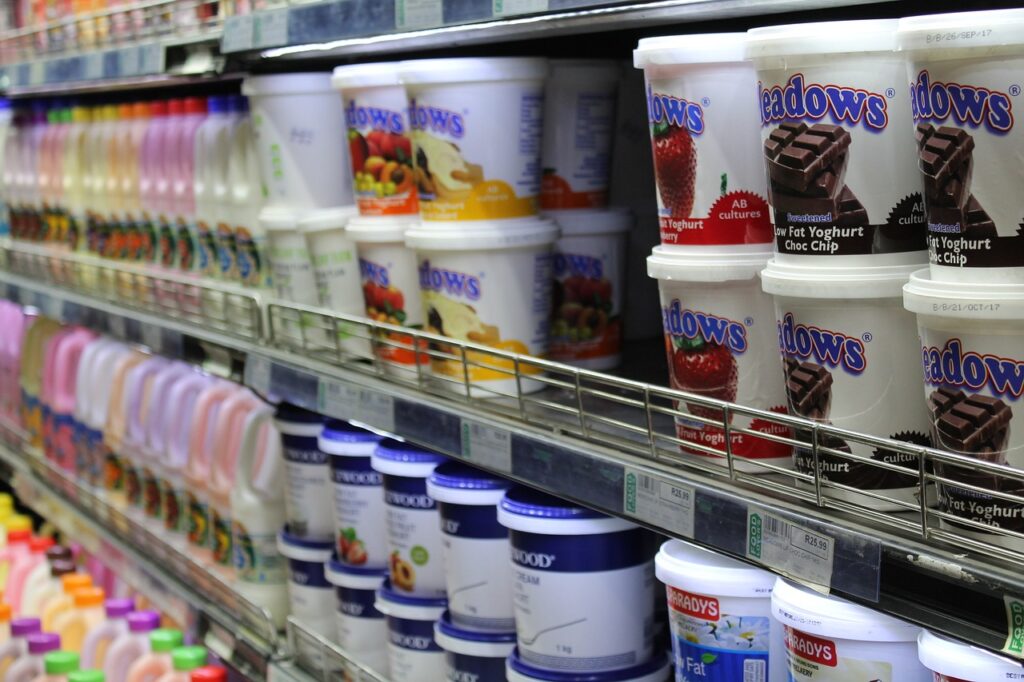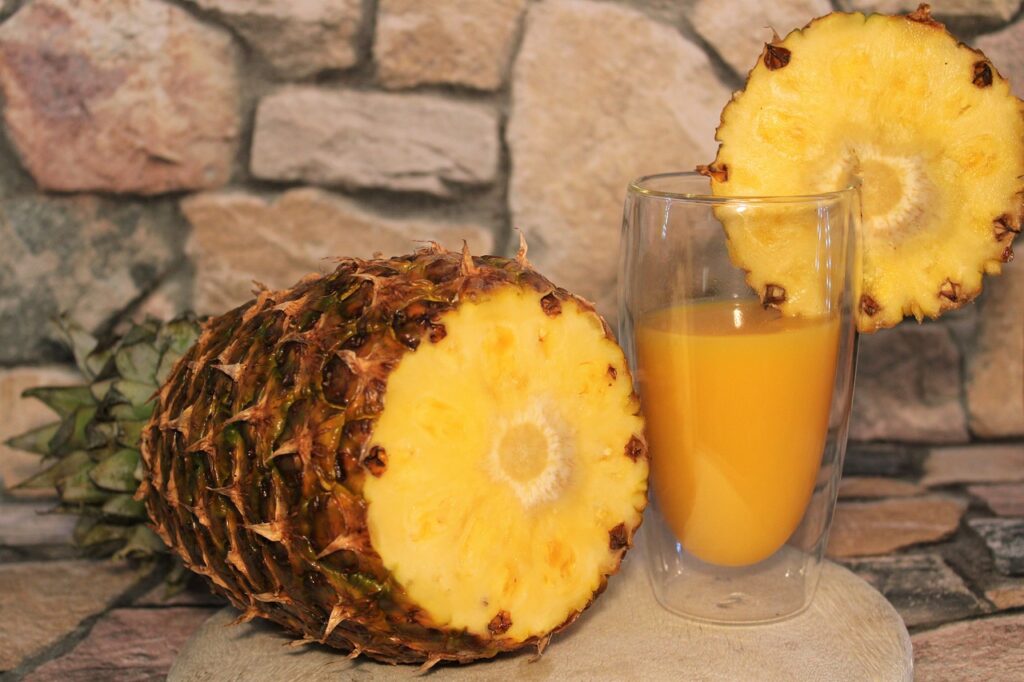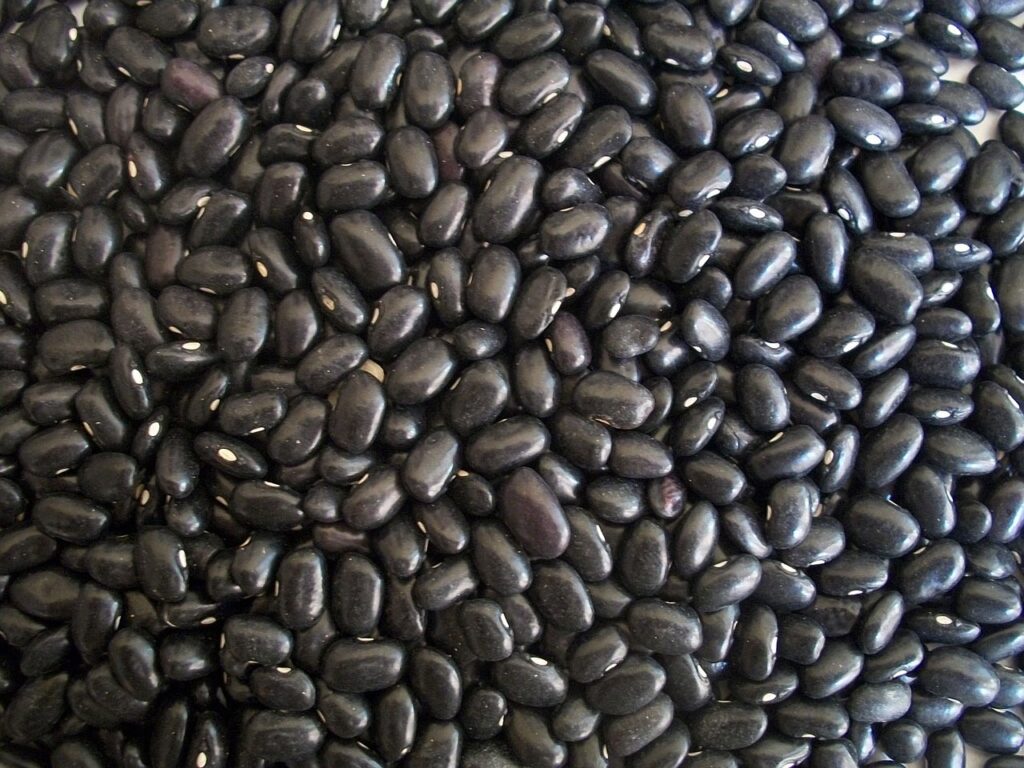Are you following a dairy-free keto diet and looking for the perfect sugar substitute? Well, you're in luck! There are several top sugar substitutes that are not only keto-friendly but also dairy-free. These alternatives can satisfy your sweet tooth without derailing your diet.
But which ones should you choose? In this discussion, we will explore the best sugar substitutes for dairy-free keto diets, providing you with all the information you need to make an informed decision.
So, let's dive in and discover the sweet world of dairy-free keto sweeteners!
Stevia: A Natural Sugar Substitute

Stevia is a natural sugar substitute derived from the leaves of the South American plant Stevia rebaudiana, making it a popular choice for those following dairy-free keto diets. This natural sweetener is a great option for those looking to reduce their sugar intake without sacrificing sweetness. Stevia is approximately 200 to 300 times sweeter than sugar, so you only need a small amount to achieve the desired sweetness. This is beneficial for those on a keto diet, as it allows them to satisfy their sweet tooth while still maintaining ketosis.
One of the advantages of stevia is that it's a zero-calorie sweetener, which means it won't contribute to weight gain or blood sugar spikes. It also has minimal impact on blood glucose and insulin levels, making it a suitable choice for individuals with diabetes. Stevia comes in various forms, such as liquid drops, powder, or granulated, making it versatile and easy to incorporate into your favorite recipes and beverages.
When using stevia or any new sweetener, it's important to remember that people with diabetes should still monitor their blood sugar levels. While stevia is generally considered safe, it's always a good idea to consult with your healthcare provider before making any significant changes to your diet.
Erythritol: A Keto-Friendly Sweetener
Looking for a keto-friendly sweetener that won't spike your blood sugar levels? Erythritol might be just what you need.
This sugar alcohol has zero calories, zero carbs, and a glycemic index of 0, making it an ideal choice for those on a dairy-free keto diet.
Not only does erythritol offer sweetness without the guilt, but it also provides antioxidant properties, making it a top contender among sugar substitutes for your baking and cooking needs.
Health Benefits of Erythritol
Erythritol, a keto-friendly sweetener with no calories, carbs, or impact on blood glucose levels, offers a range of health benefits due to its antioxidant properties and ability to remove free radicals. Here are some of the health benefits of erythritol:
- Antioxidant properties: Erythritol acts as an antioxidant, helping to neutralize harmful free radicals in the body. This can help reduce oxidative stress and lower the risk of chronic diseases.
- Dental health: Unlike sugar, erythritol doesn't contribute to tooth decay. In fact, it may even help prevent cavities by reducing the growth of bacteria in the mouth.
- Digestive tolerance: Erythritol is well-tolerated by most people and doesn't have the laxative effects often associated with other sugar alcohols. This makes it a suitable option for those with sensitive stomachs.
Cooking and Baking With Erythritol
When cooking and baking on a dairy-free keto diet, incorporating erythritol as a keto-friendly sweetener can provide a versatile and health-conscious alternative to sugar. Erythritol is a sugar alcohol that's 70% as sweet as sugar but has no calories, no carbs, and doesn't raise blood glucose levels. It's an ideal option for those following a dairy-free keto lifestyle.
Erythritol measures 1:1 like sugar in terms of sweetness, making it a suitable substitute in a wide range of recipes. This makes it a versatile sweetener for various culinary applications. However, it's important to note that individuals with diabetes should monitor their blood sugar levels when trying a new sweetener, including erythritol.
Erythritol Vs. Other Sugar Substitutes
To further explore the benefits of erythritol as a keto-friendly sweetener, let's now compare its properties and advantages to other sugar substitutes commonly used in dairy-free keto diets.
- Erythritol and xylitol are recommended sugar alcohol substitutes for keto diets due to their low impact on blood sugar and potential health benefits.
- Erythritol has no calories, carbs, and antioxidant properties, while xylitol can help prevent tooth decay and measures 1:1 like sugar in sweetness.
- Monk fruit and stevia are plant-derived sweeteners with concentrated sweetness, suitable for ketogenic diets due to their low glycemic index.
Erythritol, stevia, and monk fruit are among the top recommended keto sweeteners due to their minimal impact on blood sugar levels and suitability for a low-carb diet. They provide a healthy sugar substitute that can satisfy your sweet tooth without causing a spike in blood glucose levels.
When choosing a sugar substitute for your keto meal or baked goods, it's best to avoid sweeteners that contain maltodextrin or dextrose, as these can increase appetite and have a higher glycemic index. Opt for erythritol, stevia, or monk fruit for a better taste and minimal effect on blood sugar.
Monk Fruit: A Low-Calorie Option
Monk fruit is an excellent low-calorie sweetener option for those following a dairy-free keto diet. Derived from a small round fruit native to Southeast Asia, monk fruit is approximately 100-250 times sweeter than regular sugar. It's often blended with other ingredients to counteract its natural bitterness. What makes monk fruit a popular choice for keto diets is its low glycemic index of 0, meaning it doesn't raise blood glucose levels. This makes it a suitable option for individuals looking to manage their blood sugar levels while still satisfying their sweet tooth.
One of the biggest advantages of monk fruit is its zero calorie and zero carb content. This makes it an ideal sweetener for those on a calorie-restricted or low-carb diet. Unlike other sweeteners like maple syrup, monk fruit won't derail your keto goals. It can be used to sweeten a variety of dishes and beverages without adding any extra calories or carbohydrates.
When choosing monk fruit as a sweetener, it's best to opt for pure monk fruit without added sweeteners. This will ensure better blood sugar control and prevent any unwanted spikes. So, if you're on a dairy-free keto diet and looking for a low-calorie sweetener, monk fruit is a great option to consider. Its natural sweetness and zero impact on blood sugar make it a perfect choice for those seeking a healthier alternative to sugar.
Allulose: The Best Sugar Substitute for Keto

Allulose emerges as the top choice for a sugar substitute on the keto diet due to its non-glycemic properties and ability to mimic sugar without affecting blood sugar levels. This makes it an excellent option for those following dairy-free keto diets.
Here are three reasons why allulose is the best sugar substitute for keto:
- Non-Glycemic: Unlike regular sugar, allulose doesn't raise blood sugar levels. It has a minimal impact on insulin secretion, making it suitable for those on a low-carb, sugar-free diet like keto.
- Similar to Sugar: Allulose functions similarly to sugar, providing a sweet taste without the added carbs and calories. It can be used in various recipes as a one-to-one replacement for sugar, making it convenient for those following a keto lifestyle.
- Natural and Plant-Based: Allulose is a natural sweetener found in small amounts in certain fruits and foods. It's also suitable for plant-based diets, making it a versatile option for those with specific dietary restrictions.
Xylitol: A Sugar Alcohol Alternative
Xylitol, a sugar alcohol alternative, can be a suitable option for those following a dairy-free keto diet when used in limited amounts. With a glycemic index of 7, xylitol is considered keto-friendly and doesn't cause a significant increase in blood sugar levels. However, it's important to note that xylitol should still be used with caution on a dairy-free keto diet.
One of the benefits of xylitol is that it measures 1:1 like sugar in terms of sweetness. This means that you can easily substitute xylitol for sugar in your favorite recipes without compromising on taste. Additionally, xylitol has been found to help prevent tooth decay, making it a popular ingredient in sugar-free gum and mouthwashes.
When incorporating xylitol into your dairy-free keto diet, it's crucial to remember that moderation is key. While it may be a suitable sugar substitute, consuming large amounts of xylitol can have a laxative effect and lead to digestive issues. It's recommended to start with small amounts and gradually increase as tolerated.
Chicory Root: A Plant-Based Sweetener

Chicory root, a plant-based sweetener derived from the root of the Belgian endive plant, offers a low-carb and dairy-free keto-friendly alternative to traditional sugar. This natural sweetener contains soluble fibers called inulin and fructooligosaccharides (FOS) that provide its sweet taste.
Here's why you should consider incorporating chicory root into your dairy-free keto diet:
- Low-carb properties: Chicory root sweetener contains inulin, a carbohydrate that can't be broken down by human digestive enzymes. This means that it has zero net carbs, making it a suitable choice for those following a low-carb or keto lifestyle.
- Minimal impact on blood sugar: Since inulin can't be digested, it doesn't cause a significant increase in blood sugar levels. This makes chicory root sweetener a great option for individuals looking to reduce their sugar intake while maintaining stable blood sugar levels.
- Versatile usage: Chicory root sweetener can be used as a substitute for traditional sugar in a variety of sweet foods and recipes. Whether you're baking keto-friendly desserts or sweetening your morning coffee, chicory root can provide the sweetness you crave without the added carbs.
Incorporating chicory root into your dairy-free keto diet can be a beneficial choice. With its low-carb properties and minimal impact on blood sugar levels, this plant-based sweetener allows you to enjoy sweet foods while staying on track with your dietary goals.
Give chicory root sweetener a try and experience a healthier way to satisfy your sweet tooth.
Coconut Sugar: A Granulated Sugar Alternative
Derived from the sap of coconut palm trees, coconut sugar is a granulated sugar alternative that offers a lower glycemic index and some nutritional benefits compared to refined sugar. This natural sweetener has gained popularity among those following a dairy-free keto diet.
Coconut sugar contains small amounts of nutrients like iron, zinc, calcium, and potassium, providing some nutritional benefits compared to refined sugar. It also has a caramel-like flavor that adds a unique taste to recipes.
One of the main advantages of coconut sugar is its lower glycemic index. This means that it causes a slower rise in blood sugar levels compared to regular sugar, making it a better option for blood sugar control. However, it's important to note that coconut sugar isn't completely carb-free and should still be used in moderation on a dairy-free keto diet.
While it's a better alternative to white sugar, it's important to be mindful of portion sizes and overall carbohydrate intake. When using coconut sugar as a substitute, it can be used in a 1:1 ratio in recipes that call for regular sugar.
Date Sugar: A Brown Sugar Substitute

Date sugar is a healthy alternative to brown sugar, as it's made from dried, ground dates and retains the fiber and minerals of the fruit.
It can be used in recipes as a 1:1 replacement for brown sugar, providing a caramel-like flavor.
When compared to regular sugar, date sugar has a lower glycemic index, making it a suitable choice for those following a dairy-free keto diet.
Health Benefits of Date Sugar
When looking for a natural and nutrient-rich alternative to brown sugar, date sugar emerges as a preferable option for individuals following a dairy-free keto diet. Date sugar is a natural sweetener made from dried, ground dates, offering a caramel-like flavor and a source of essential nutrients.
Here are the health benefits of date sugar:
- Fiber and Antioxidants: Date sugar is rich in fiber, aiding in digestion, and supporting a healthy immune system. It also contains antioxidants that help protect cells from damage caused by free radicals.
- Low Glycemic Index: Date sugar has a low glycemic index, making it suitable for managing blood sugar levels and preventing energy crashes.
- Mineral Powerhouse: Date sugar provides essential nutrients like potassium, magnesium, and iron. These minerals contribute to overall health and well-being.
Using Date Sugar in Recipes
To incorporate the rich, caramel-like flavor of date sugar as a brown sugar substitute in your recipes, consider using it in baked goods, oatmeal, and beverages.
Date sugar, a natural sweetener made from dried and ground dates, is a great option for those following dairy-free keto diets. It can be used as a substitute for brown sugar in various recipes, adding sweetness with a hint of natural caramel flavor. However, it's important to note that date sugar is less sweet than regular sugar, so you may need to use a larger amount to achieve the desired level of sweetness.
Additionally, due to its coarse texture, date sugar may not dissolve completely in liquids, making it more suitable for recipes where a grainy texture is acceptable. When using date sugar in baked goods, be aware that it can cause them to brown more quickly, so adjust your baking time and temperature accordingly.
Comparing Date Sugar to Brown Sugar
If you're looking for a natural and unprocessed alternative to brown sugar, date sugar is a great option to consider.
Here's how date sugar compares to brown sugar:
- Lower glycemic index: Date sugar has a lower glycemic index than brown sugar, meaning it causes a slower rise in blood sugar levels. This makes it a suitable choice for those following a keto or blood sugar-friendly diet.
- Nutrient-rich: Unlike brown sugar, date sugar contains essential nutrients such as fiber, potassium, and antioxidants. These nutrients provide added health benefits and make date sugar a more nutrient-dense option.
- Distinct flavor: Date sugar has a distinct flavor that may impart a subtle fruity taste to recipes. This can enhance the overall flavor profile when used as a brown sugar substitute.
Syrups With Natural Sugar: Liquid Sweeteners

Syrups with natural sugar, such as honey, maple syrup, and agave nectar, are commonly used as liquid sweeteners in place of traditional sugar. These natural sweeteners can be a tempting option for those following a dairy-free keto diet, as they provide a rich, sweet taste to various keto recipes. However, it's important to note that these syrups are generally higher in carbs and sugars, making them less suitable for a strict keto diet.
While these syrups are derived from natural sources, they can still have an impact on blood sugar levels and insulin response. Therefore, it's crucial to use them sparingly and be mindful of their carbohydrate content. Maple syrup, for example, contains around 13 grams of carbs per tablespoon, while agave nectar has about 16 grams of carbs per tablespoon. These numbers can add up quickly and potentially kick you out of ketosis if consumed excessively.
To incorporate these syrups into your dairy-free keto diet, it's recommended to use them in moderation and consider their carb content as part of your overall daily intake. Be mindful of portion sizes and adjust other aspects of your diet to accommodate these sweeteners.
Artificial Sweeteners to Avoid on Keto
When following a keto diet, it's important to be cautious of certain artificial sweeteners that can have negative effects.
Sweeteners such as sucralose (Splenda), saccharin (Sweet N Low), acesulfame potassium (K), and aspartame (Equal or NutraSweet) should be avoided or used sparingly.
These sweeteners can stimulate appetite and may alter gut bacteria, which can hinder your progress on a keto diet.
Harmful Artificial Sweeteners
Avoid artificial sweeteners with a high glycemic index and negative metabolic effects on a keto diet. These harmful artificial sweeteners can disrupt your blood glucose and insulin levels, making it harder for you to maintain ketosis and reach your health goals.
Here are three types of artificial sweeteners to avoid on a keto diet:
- Diet Soft Drink Sweeteners: Sweeteners found in diet soft drinks may contribute to long-term weight gain and metabolic issues. It's best to opt for unsweetened beverages or those sweetened with natural, keto-friendly alternatives.
- High-Fructose Sweeteners: Sweeteners like high fructose corn syrup, fruit juice concentrate, and agave syrup are high in fructose, which can raise your blood sugar levels and hinder ketosis. Avoid these sweeteners when looking for keto-friendly options.
- Maltitol and Xylitol: While maltitol and xylitol are commonly found in sugar-free products, they can still impact your blood sugar levels. It's important to use these sweeteners in small amounts or avoid them altogether on a keto diet.
Negative Effects on Keto
Artificial sweeteners like sucralose, saccharin, acesulfame potassium, and aspartame can have negative effects on a keto diet. These common sweeteners may raise blood sugar levels and impact insulin response, making them unsuitable for a keto diet that aims to keep blood sugar and insulin levels low. Consuming artificial sweeteners can also trigger cravings for more sweet-tasting treats, leading to over-consumption and hindering the process of ketosis.
Additionally, long-term consumption of zero-calorie sweeteners found in diet soft drinks has been associated with weight gain and metabolic issues, which pose risks for individuals following a keto diet. Natural-based sweeteners are a better choice over synthetic ones due to the potential negative effects of artificial sweeteners on a keto diet.
It's important to be aware of these reported side effects when choosing sugar substitutes for a dairy-free keto diet.
Side Effects of Sugar Alcohols

What are the potential side effects of consuming sugar alcohols on a dairy-free keto diet?
When it comes to sugar alcohols, there are a few side effects that you should be aware of on your dairy-free keto diet. Here are some potential side effects of consuming sugar alcohols:
- Digestive issues: Sugar alcohols like erythritol, xylitol, sorbitol, and maltitol can cause digestive issues such as bloating, gas, and diarrhea in some individuals. These effects can vary from person to person, so it's important to listen to your body and adjust your intake accordingly.
- Laxative effects and gastrointestinal discomfort: Overconsumption of sugar alcohols can lead to laxative effects and gastrointestinal discomfort. This is because sugar alcohols aren't fully absorbed by the body and can ferment in the gut, causing these unpleasant symptoms.
- Cooling sensation in the mouth: Some people may experience a cooling sensation in the mouth when consuming sugar alcohols. This sensation is due to the fact that sugar alcohols have a lower heat of solution than regular sugar.
Although sugar alcohols may have a lower impact on blood sugar compared to regular sugar, it's important to remember that they still contain calories and carbohydrates. Excessive intake of sugar alcohols can potentially disrupt gut microbiota and cause discomfort. Therefore, it's important to consume them in moderation and pay attention to how your body reacts to them on your dairy-free keto diet.
Baking Considerations for Sugar Substitutes
When it comes to baking with sugar substitutes on a dairy-free keto diet, there are a few considerations to keep in mind.
Firstly, you want to ensure that you're able to achieve the desired level of sweetness without using traditional sugar.
Secondly, you may encounter some challenges in terms of texture and browning, as sugar substitutes can behave differently when heated.
Lastly, it's important to choose the best sugar substitutes for baking that won't only provide sweetness but also maintain the integrity of your keto diet.
Sweetening Without Sugar
To sweeten your baked goods without using sugar, consider using alternative sweeteners that have a minimal impact on blood sugar and insulin response. Here are three options to consider:
- Stevia: Stevia is a natural sweetener derived from the leaves of the stevia plant. It has a score of zero on the glycemic index, meaning it doesn't raise blood sugar levels. You can find stevia in granulated or liquid form, making it easy to incorporate into your recipes.
- Erythritol: Erythritol is a sugar alcohol that has zero calories and doesn't affect blood sugar levels. It has a granulated texture and a taste similar to sugar, making it a popular choice for baking. Just be mindful that consuming large amounts of erythritol can cause digestive issues for some people.
- Monk fruit: Monk fruit extract is another natural sweetener that has zero calories and doesn't impact blood sugar levels. It's derived from the monk fruit and is available in powdered or liquid form. Monk fruit has a sweet taste without any bitter aftertaste, making it a great option for baking.
Baking Challenges Overcome
As you navigate the world of sugar substitutes for your dairy-free keto diet, it's important to consider the baking challenges that can arise when using these alternative sweeteners. While sugar substitutes offer a low-carb and low-calorie option for sweetening your baked goods, they may present some unique challenges in terms of texture, taste, and moisture.
One common issue when using sugar substitutes in baking is the lack of caramelization, which can affect the browning and flavor of your baked goods. To overcome this, you can try using a combination of sugar substitutes or adding a small amount of molasses or vanilla extract to enhance the flavor.
Additionally, some sugar substitutes may have a cooling effect, so adjusting the baking time and temperature can help achieve the desired texture.
Best Sugar Substitutes
For optimal baking results with sugar substitutes, it's important to choose sweeteners that have minimal impact on blood glucose and insulin levels. Here are some considerations when selecting the best sugar substitutes for your dairy-free keto diet:
- Look for sweeteners labeled as zero, as they tend to have minimal effects on blood glucose and insulin. However, more research is needed to understand their long-term impact on health.
- Be cautious with sweeteners that contain carbs like dextrose and maltodextrin, as they can affect ketosis and hinder your progress.
- Avoid sweeteners with high scores and in the red zone, as they can also hinder ketosis.
When it comes to recommended keto sweeteners, consider options such as stevia, erythritol, and monk fruit. These sweeteners have minimal impact on blood glucose and insulin levels. Additionally, sugar alcohols like erythritol and xylitol can be good choices, as they offer additional benefits like antioxidant properties and tooth decay prevention.
Remember to test your blood sugar levels when trying new options, especially if you have diabetes.
Brown Sugar and Powdered Sugar Substitutes
Creating brown sugar and powdered sugar substitutes for dairy-free keto diets is a simple process that involves combining a low-carb sweetener with specific ingredients to achieve the desired taste and texture. For a brown sugar substitute, you can combine a low-carb sweetener, such as erythritol or stevia, with a small amount of molasses. This combination will give you a similar taste and texture to traditional brown sugar.
When making a powdered sugar substitute, blend a low-carb sweetener with a small amount of cornstarch or arrowroot powder. This will help to achieve the right consistency for your recipes.
Using brown sugar and powdered sugar substitutes in your dairy-free keto diet can help you satisfy your sweet tooth without causing a spike in your blood sugar levels. The low-carb sweeteners used in these substitutes have minimal impact on blood sugar, making them suitable for those following a keto lifestyle.
Maple syrup is another option that can be used as a brown sugar substitute, but it should be used sparingly due to its higher carb content.
When using these substitutes in your recipes, it may be necessary to make adjustments to achieve the desired taste and texture. Look for dairy-free and low-carb recipes that specifically feature brown sugar and powdered sugar substitutes for successful substitution.
Using Sugar Alternatives in Recipes

To successfully incorporate sugar alternatives into your recipes for dairy-free keto diets, it's important to understand the impact of different sweeteners on blood sugar levels and ketosis. Here are some key points to keep in mind:
- Sweetener Ratings: Sweeteners are often rated based on their effects on blood sugar and insulin response. Look for options that have a low glycemic index and minimal impact on blood sugar levels.
- Carb Content: Pay attention to sweeteners that contain carbs like dextrose and maltodextrin, as they can affect ketosis. Sweeteners with numbers and asterisks often fall into this category and should be used sparingly.
- Avoid Certain Sweeteners: Sweeteners in the middle and red zone on the rating scale should be avoided for maintaining ketosis. These sweeteners may have a higher impact on blood sugar levels and can hinder your progress on a keto diet.
Sweetener Conversion Chart
The Sweetener Conversion Chart is a valuable tool for easily substituting sweeteners in a dairy-free keto diet while considering their impact on blood sugar levels and ketosis. This chart provides important information on the effects of different sweeteners on blood sugar and insulin response, allowing you to make informed choices about which sweeteners to use in your recipes. It offers a clear comparison of how different sweeteners can affect your ketosis and overall metabolic health.
For those following a dairy-free keto diet, the Sweetener Conversion Chart is particularly helpful in determining which sweeteners are suitable. It can help you find alternatives to traditional sugar that won't derail your keto goals or cause spikes in blood sugar. This is especially important if you have specific dietary restrictions or health concerns.
For example, if you're looking for a dairy-free keto-friendly sweetener, the chart might suggest using erythritol or stevia instead of maple syrup. While maple syrup is a natural sweetener, it contains a high amount of sugar and can significantly impact blood sugar levels. On the other hand, erythritol and stevia are both sugar substitutes that have minimal impact on blood sugar and can be used in moderation on a keto diet.
Conclusion
In conclusion, when following a dairy-free keto diet, there are several sugar substitutes available that can satisfy your sweet tooth without compromising your health goals. Stevia, erythritol, and monk fruit are all excellent options that are low in calories and have minimal impact on blood sugar levels.
Did you know that monk fruit has a glycemic index of 0, making it a great choice for those watching their blood sugar? Explore these sugar substitutes and enjoy your dairy-free keto journey with delicious and guilt-free sweetness.







